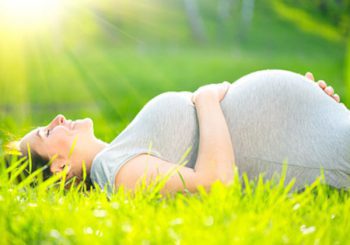By Jane Marsh
Guest Writer for Wake Up World
Congratulations, you’re pregnant! You probably have a million and one thoughts and feelings swirling around in your head. This is such an exciting time, but one that comes with its fair share of decisions and challenges. You now have a mile-long to-do list and a menu of ingredients you need to avoid.
[pro_ad_display_adzone id=”110028″]
All these new developments might make you feel like everything is changing, but one thing doesn’t have to — your commitment to green living. You can quickly adapt to being sustainable during pregnancy and beyond with a few alterations.
1. Find Second-Hand Maternity Clothes
Buying new maternity clothing is expensive, especially for something you only use for a short while. Yet, the market has increased exponentially over the last two decades and could reach $16.57 billion globally by 2028.
With more second-hand options than ever, you can avoid buying into mass-marketed maternity wardrobes — which are bad news for your wallet and the environment. Most people only need to wear maternity-specific clothing for the last trimester and can get by with loose clothing until then.
For those last three months, check local thrift stores, online consignment shops and Facebook Marketplace and Groups. You can also ask friends and family or your church if anyone has maternity clothing they no longer need.
2. Invest in Period Underwear
Specialized period panties are typically a sustainable way of managing your monthly cycle. However, they can also be helpful during pregnancy as a replacement for disposable incontinence or postpartum underwear.
Especially during your last trimester, holding your bladder when you sneeze, cough or just go about your daily life becomes a struggle. Instead of going through countless panty liners, try out menstrual underwear to hold liquid.
You can even make these multipurpose for your postpartum care. For the first few days, the bleeding may be heavy enough that you need to double up a pad with period underwear. Afterward, you can save disposable pads and adult diapers from the landfill by using these special panties. Then, set them aside for when your monthly cycle is regular again.
3. Purchase Local Groceries
Buying your weekly groceries from local farms and markets is an easy way to shop responsibly. You lower your carbon footprint by reducing the gas required to get food from farm to table. Also, you support local businesses in the process.
While pregnant, you need to pay extra attention to your nutrition and the health of the food you consume. Buying local produce, dairy and meat is a way of controlling the ingredients you put in your body. Seek out farms that don’t use harmful pesticides and hormones to minimize their effects on you and your baby. Just remember — consuming raw eggs or rare meat while pregnant could be detrimental, but pasteurizing or cooking can make them perfectly safe to eat.
4. Walk When Possible
Walking is always a great eco-friendly method of transportation. You can improve your health and reduce your carbon footprint by keeping up with this habit during pregnancy. Walking is a low-difficulty way to get in some moderate-intensity exercise daily.
To multitask your daily workout and sustainability efforts, practice leaving the car home whenever possible. However, while walking will be perfectly safe for most moms-to-be, always check with your doctor before starting an exercise program. You may have one of a handful of conditions that can make walking or other workouts complicated or impossible.
5. Plan a Low-Waste Gender Reveal
While gender reveals are super trendy right now, most are also incredibly wasteful. Common reveals involve confetti or powder-loaded one-time use launchers or balloons. The materials for these items generally aren’t biodegradable and will sit in a landfill once they’ve had their five minutes of fame at your party.
To conserve resources and go low on waste, opt for a consumable gender reveal. Have a trusted friend work with a local baker to create a dessert with a pink or blue theme. A cake could have a pink or blue sponge, frosting or filling inside. You could even go less traditional with cake pops, cupcakes or doughnuts.
6. Add Pre-Loved Items to Your Registry
Let’s face it — everyone loves getting new things. However, families use most baby items for such a short period and then discard or keep them in storage. Rather than request all new stuff on your baby registry, you could let friends and family know you’re open to receiving gently loved items.
Getting used furniture is especially beneficial since these are the most costly items on your list. Plenty of people probably have extra baby things lying around, but far fewer would be able to afford to buy those exact things new as a gift for you. Accepting their pre-loved baby goods saves them money and keeps those items out of landfills and in use.
7. Opt for Mason Jars Over Plastic Bags
Breastfeeding can be an excellent way to provide for your baby — but as you might notice as you add the list of supplies to your registry, it also comes with a lot of single-use plastic. Pumping is handy to keep up milk supply and feed your baby when they need to be away from you, but the traditional storage option only gets used once.
Instead of using plastic bags, opt for a reusable solution. Mason jars can still give your milk an air-tight seal and are easy to store. Once you’ve emptied the contents, you can sterilize the glass jar and use it again. Also, once you’re no longer breastfeeding, you can use them for something else in your home — mason jars are very versatile.
Sustainability Is Good for Your Baby Too
These changes are just part of an overall sustainable lifestyle. Throughout your pregnancy, the steps you take toward green living add up for the environment and your baby’s health. Lowered exposure to plastics and harmful chemicals will promote healthy development in your little one and help you to have a happier, healthier pregnancy.
About the author:
 Jane is the founder and editor-in-chief of Environment.co where she shares practical tips on how to live a greener life.
Jane is the founder and editor-in-chief of Environment.co where she shares practical tips on how to live a greener life.
[pro_ad_display_adzone id=”110027″]



